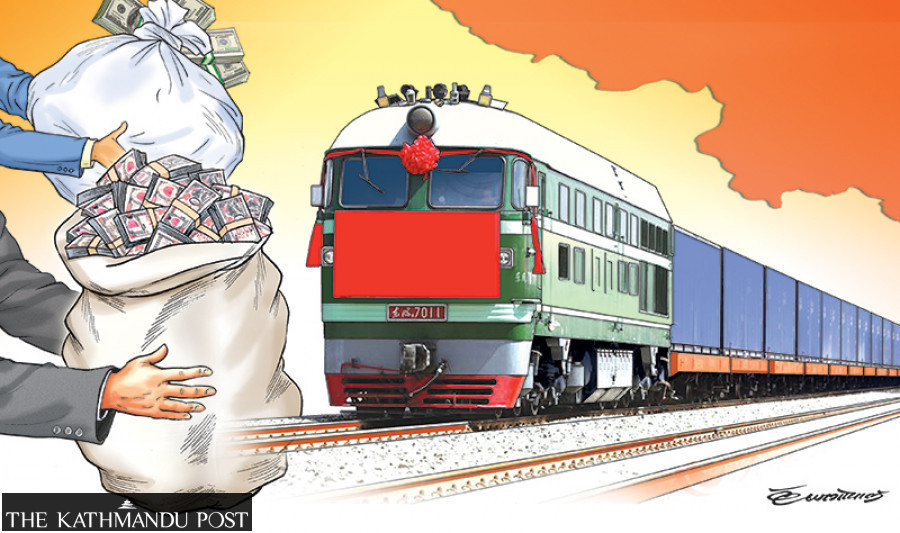Editorial
Slow train to China
The longer the cross-border rail project lingers, the more problems it will create in bilateral relations.
There are many sceptics of the long-discussed rail line linking Kerung on the Nepal-China border with Kathmandu. With a pre-feasibility price tag exceeding $3 billion, they see no reason to build the high-priced scheme, especially if Nepal has to take out high-interest Chinese loans to do it. Of course, it would be a different story if China agrees to build it on grant. But that is unlikely as China these days does not execute such expensive projects abroad on a gift basis. Moreover, India does not much like the idea of a China-Nepal-India rail, and if the Chinese cannot connect to the vast North Indian market via Nepal, they will be even more averse to a free deal. But if the trans-Himalayan railway project is to move beyond the realm of speculation, a feasibility study to arrive at a more exact cost and map out complexities is a must. China has agreed to do the feasibility study, which is estimated to cost $26 million, as a grant. It has even sent Nepal an official proposal to sign a letter of exchange for the study.
Even though the Chinese have been pressing for an expeditious reply, the Nepali side wants to wait until the formation of a new government in Kathmandu—and rightly so. A caretaker government should not undertake such a sensitive bilateral matter. Yet the story does not end there. High-ranking officials at the ministries of Foreign Affairs, Home and Physical Infrastructure blame each other for lack of progress on the proposed feasibility study. Most recently, it was in March that Nepal and China signed an agreement on a feasibility study during the official visit of Chinese Foreign Minister Wang Yi to Kathmandu. Yet there has been no progress. There appears to be little coordination between Nepali government agencies that should be working together to make the undertaking a success. The Nepali bureaucracy is also suspicious of the Chinese intent. Why does Nepal have to time and again sign similar agreements on the feasibility study? Is China itself not in a mood for the study, they suspect?
This in turn heightens doubts that the Chinese are only playing along to please certain constituencies in Nepal. Nepali leftist parties have made such a hoo-ha about the cross-border railway, and perhaps China does not want them to lose face by rejecting the project outright. Maybe such an arrangement suits both sides just fine. While the Chinese keep their Nepali interlocutors happy, Nepali communists can also always claim that there is some progress being made. But that would not be in the national interest, which will be best served by getting the feasibility study over and done with, whosoever pays for it. The longer the cross-border rail project lingers, the more problems it will create in bilateral relations. If the project is not feasible, maybe the time has come to move on to other alternatives to improve connectivity with the northern neighbour. Either way, the new government in Kathmandu should look to settle the matter once and for all—at the earliest.




 20.12°C Kathmandu
20.12°C Kathmandu













